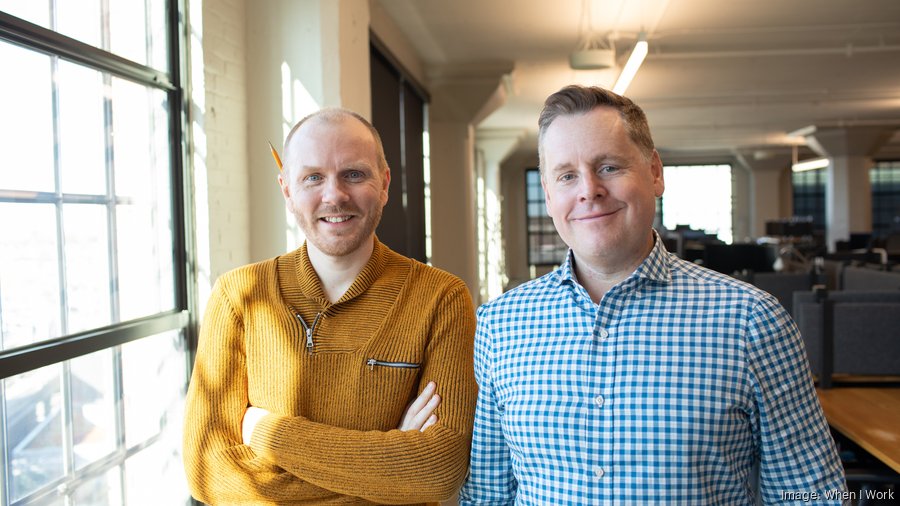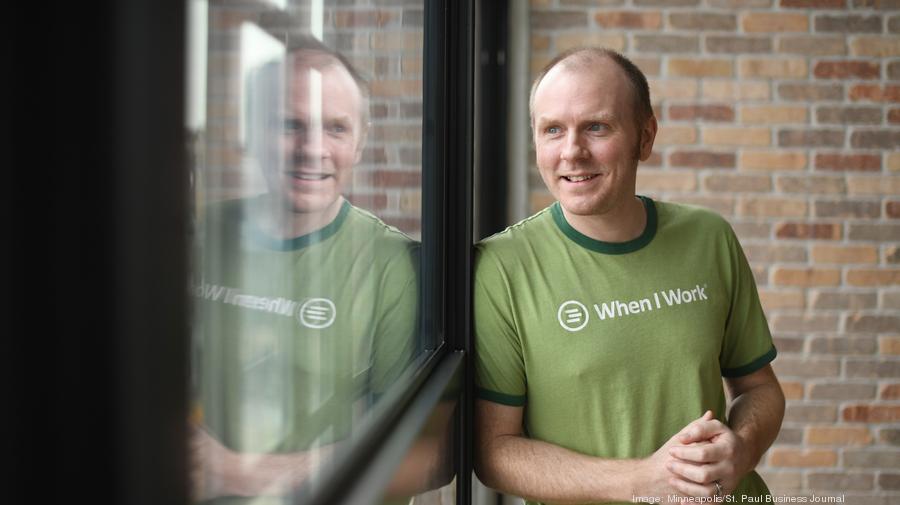It’s been a year-and-a-half of change for When I Work, the Minneapolis-based firm that sells software that helps employers track timesheets and build schedules for hourly workers.
During that time, the company revamped its C-suite, including the top post, and in November it landed a $200 million private equity investment from Bain Capital Tech Opportunities.
That private equity investment, along with steady growth and 18 straight months of profitability, are all indicators that When I Work has graduated from being a startup and is now an established fast-growing tech company that can fuel its own growth, said CEO Martin Hartshorne.
“We're setting in with fresh legs with someone who looks for companies that are growing over 30% annually, and also can be profitable,” Hartshorne said about the deal with Bain Capital. “That's not what investors for startups look for. They just look for 'how can you grow 100% annually, and we don't care about profit.' It's a different mentality.”
Hartshorne added that When I Work's relationship with Boston-based Bain Capital isn't one and done, it's a long-term relationship.
“We have an investor that can basically back anything we want to do into the future versus having to go find a new investor for doing this next thing, and a new investor to find the next thing,” Hartshorne said. “It’s like you've partnered with a bank versus just an investor.”
The investment from Bain Capital followed a series of moves in When I Work's executive ranks.
In July 2020, co-founder Chad Halvorson transitioned from his role as CEO to chief marketing officer, and Hartshorne, a veteran of leading software-as-a-service companies, was brought in as CEO. Then in January, Greg Wallace became the company's first chief financial officer. And in May, it hired Octavian Tarcea to serve as chief technology officer.
Since its founding in 2010, When I Work has raised over $24 million in venture funding to fuel an aggressive growth strategy that’s played out over the past seven years. When I Work's platform is now used in over 1 million workplaces and by over 10 million employees since its founding.
But at no point was the company, and its suite of scheduling offerings, as important as it is now. The pandemic has forced millions of employers, and their employees, to rethink how they interact with their workplace.
Halvorson said When I Work's tools bring empathy into the scheduling process by giving shift-based workers more options to choose how and when they work.
Over the past five years, When I Work has expanded on this concept through the introduction of flexible self-scheduling. This allows employers to sketch out a weekly schedule and give shift workers the option to choose and trade shifts on an individual basis.
Halvorson said the pandemic has transformed the feature from a nice-to-have to an expectation.
“The shift-based workforce has the leverage to demand it right now,” Halvorson said. “That's a big thing that's changed and accelerated in the past 18 months.”
This growing sentiment isn’t dissimilar to Halvorson’s entire motivation for founding the company to begin with, which stemmed from the frustrations he had with a paper scheduling system that was in place during his high school job at a grocery store.

Remote first, forever
Underscoring all these milestones was the company’s decision to give its more than 200 employers — half of them in the Twin Cities — more flexibility. This remote-first model gives people the option to work in-person, or remotely, when the firm's North Loop office reopens next summer.
Halvorson said the commitment to remote work has been met with happier employees and broadens the company’s access to talent across the United States and Canada. But he added that it wasn’t a straightforward call to make in the moment.
“Our fear was that people would be upset that we’re remote first,” Hartshorne said. “It wasn’t a fear of being afraid they’re not going to work properly.”
The company is now finding prospective employees are applying for its jobs specifically because of the remote-first policy. And it needs those workers. Hartshorne said the company currently has 40 open positions, and When I Work's goal is to triple its number of employees within two or three years.
When I Work’s leadership has now turned its attention to figuring out how to reopen the office properly.
“The worst thing we could do is just open it up and people randomly go in. Because then all of a sudden, there’s like two cultures,” Hartshorne said. “There’s people who have access to that and people who don’t.”
Hartshorne imagines the company’s future office will be very different than its last in-person iteration.
“No one will have a name next to their desk. No one owns any space. There’s no such thing as a meeting you can do in person that is not also remote,” he said. “… So it might be a nice little local relief for someone who has three kids under the age of four in their house and needs a couple of days to get away.”



